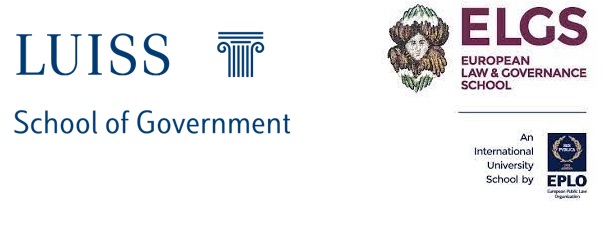Summer Program: Parliamentary Democracy in Europe.
AI and Parliaments. Challenges in representation, law-making and administrative support
The fourteenth edition of the Summer program in Parliamentary Democracy in Europe, organized by the Luiss School of Government, in collaboration with the Luiss Center for Parliamentary Studies (CESP) and with the European Law & Governance School (ELGS) of the European Public Law Organization (EPLO), is now underway. This year topic is “AI and Parliaments. Challenges in representation, law-making and administrative support”.
Artificial Intelligence and digital applications have a transformative impact on every aspect of our lives, including the legal and political spheres, and it is therefore necessary to leverage these technologies to improve also the efficiency of parliaments and parliamentary democracies.
Due to technological innovations, Parliaments are exposed to extraordinary challenges, from the point of view of procedures, organization, and internal functioning. The new possibilities that the Artificial Intelligence offers can be exploited not only in the field of legislative drafting and more generally in the decision-making process, but also for the collection, processing and synthesis of data and information, which constitute a necessary resource to the effective exercise of political direction and oversight functions. At the same time, as the scholarship keeps underscoring, there is the need to ensure that the exploitation of new technologies does not infringe upon the main tenets of liberal democratic constitutionalism.
By applying research-based knowledge and professional skills to the study of Parliaments’ exploitation of the Artificial Intelligence, the Summer Program offers a multi-faceted and updated overview of the interrelationships between AI and parliamentary democracy. This Advanced Course examines an innovative topic such as the application of AI to democratic processes and parliamentary procedures, providing participants with effective tools to deal with the phenomenon in their professional or academic environment.
The Summer Program is designed for: graduates, doctoral students and post-docs active in the field of constitutional law, human rights, political science, parliamentary and legislative studies, European studies, international affairs (preferably with a background in social sciences); civil servants from European institutions and bodies, from international organizations, and from national and subnational institutions in the EU Member States and from third countries; professionals working for NGOs, think tanks and interest groups who want to acquire advanced knowledge on the parliamentary responses to the main ongoing transitions and to crisis and emergency governance.
The summer program will include a series of lectures and other interactive activities, such as exercises and presentations by participants (as well as a visit to the Italian Chambers).

